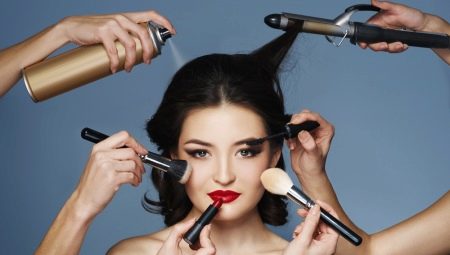The sphere of beauty and fashion includes many multifaceted and interesting professions. Each employee has mastery in a specific field, however, some specialists successfully combine the knowledge and skills of several professions.
What is this profession?
Hairdresser-makeup artist - This is a specialist who is able to perform the duties of each of the specialties at a professional level. These are multidisciplinary employees who are highly valued at the present time and are always in demand. They work both in prestigious beauty salons, and in ordinary hairdressing salons.
The hairdresser works with hair, creating hairstyles and styling. Some experts provide services for the care of curls. Makeup artist specializes in makeup: wedding, holiday, natural and other types.
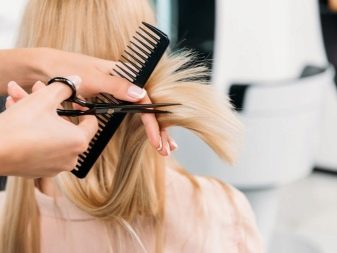
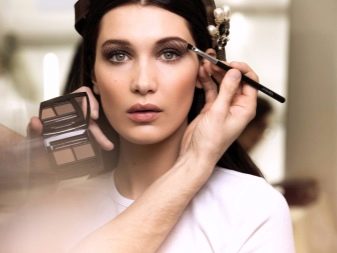
A professional hairdresser-makeup artist is a kind of stylist who is able to create a holistic look by harmoniously combining hair and makeup. Experienced professionals who work for years in the beauty industry are able to change the appearance of people beyond recognition. The work of the master is aimed at making a person more attractive by hiding the flaws of his appearance and emphasizing his dignity.
Specialists work with people of different ages and with a variety of looks, so it is important to be able to find a common language with each client. Only in this case, the master will be in demand, and the specialist’s place of work will be popular.
Revealing the beauty of people is a real art.To become a specialist in this field, you need to have not only special skills and knowledge, but also artistic taste and creativity.
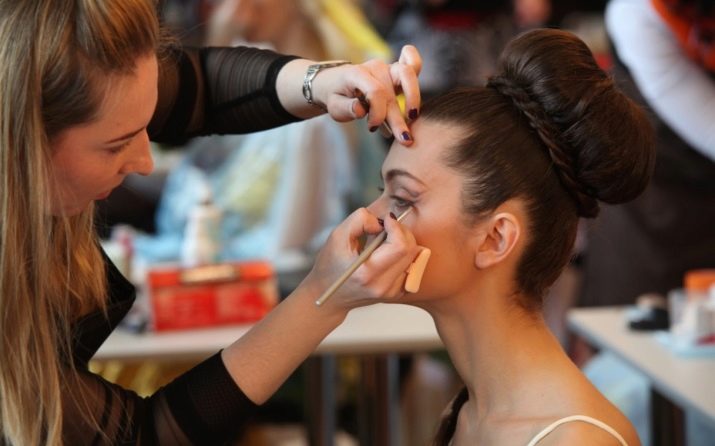
Features
The main features of the dual specialization are as follows.
- To remain professional in your field, it is necessary to constantly develop and master new techniques.
- Every year, the cosmetics market offers new products. A specialist cannot do without knowledge of the current assortment.
- Do not forget about the constant technical development. Equipment shops offer a choice of craftsmen with a wide range of multifunctional equipment. It is necessary not only to understand this segment of the market, but also to be able to properly use modern equipment.
- Beauty professionals must be good at psychology. This skill will be useful in communicating with the client and will help to find a common language with him. The visitor to the beauty salon should be comfortable and cozy.
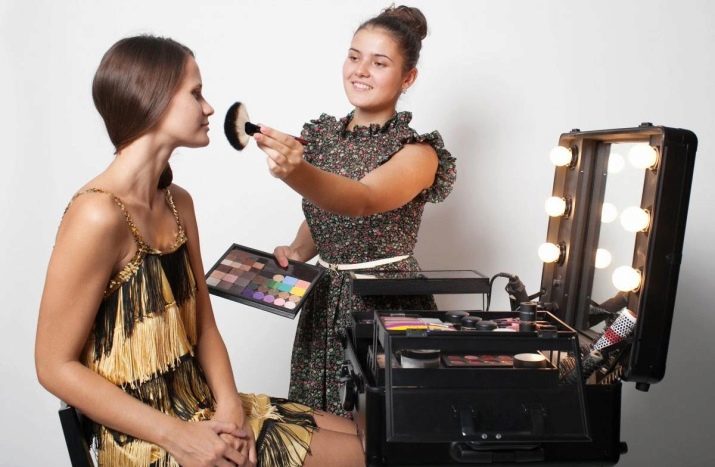
Demand
Real masters of their craft are always in demand, especially if a professional can cope with work in two directions at a high level: makeup and hairdressing. Specialists who started as regular employees later open their own beauty salons and teach novice colleagues.
Today, the services of beauty salons and hairdressers are in great demand. A wide variety of price categories is designed for both ordinary consumers and wealthy customers. Residents of large cities can confidently say that such establishments can be found at almost every step, especially in the central area of the city.
In small towns and villages, hairdressing salons are also indispensable, therefore professional hairdressers and makeup artists will always find work in their specialty.
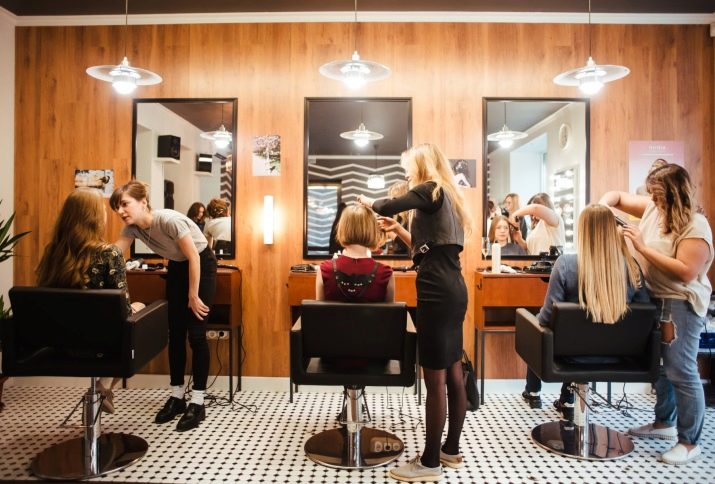
Some masters decide to work independently. They post advertisements about services and then receive clients in salons (renting a room) or at home. An experienced master will quickly fill the customer base and will accept several people a day.
If financial opportunities allow You can start your own business and work not only as a master, but also as the owner of your own salon. However, before starting your own business, you need to increase your level of professionalism, as well as have the necessary knowledge to conduct business.
Experienced professionals earn money by teaching courses in hairdressing and training novice employees from the beauty industry. This is an excellent way to earn money, but only available to broad masters.
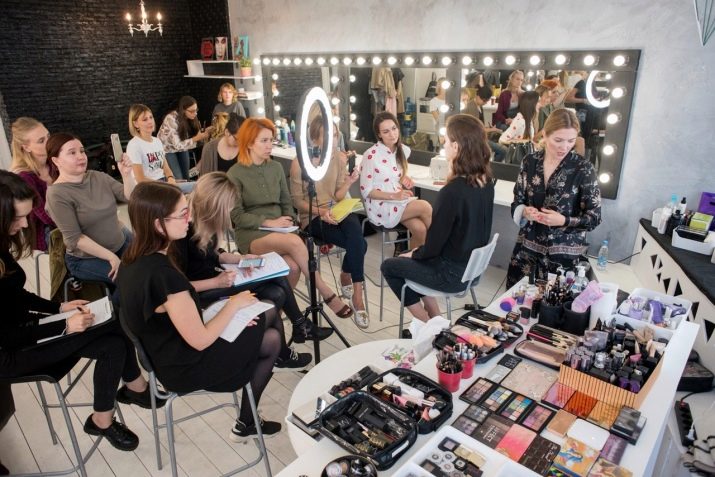
Qualification requirements
To begin your career path, you need to choose the appropriate form of training. Most professionals recommend studying at a college or school (technical school).
This type of training has many advantages.
- Ability to enter after grade 9 (This allows you to quickly get a diploma of education and get to work). If you wish, you can do it after graduating from the 11th grade of the school. Students can receive the specialty of a wedding stylist or a universal hairdresser.
- Studying in such educational institutions is much easier., than in universities.
- You can get a profession for free, because many vocational schools have many budget places.
- Many students go after graduation on production practicewhere you can hone your skills and get your first job.
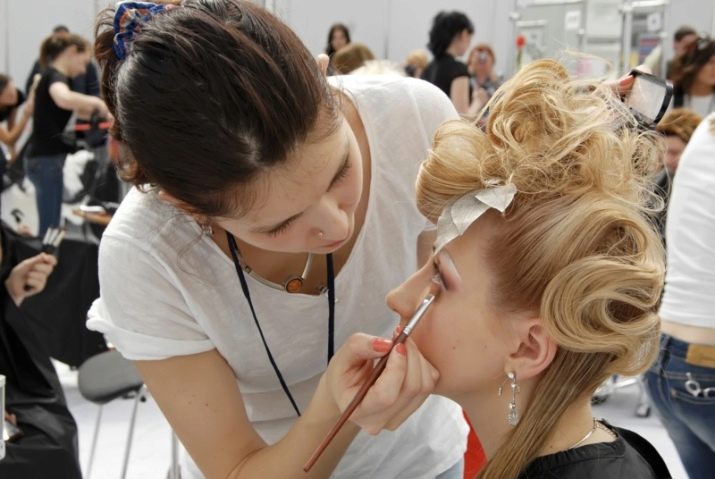
The disadvantages are as follows.
- The student needs to purchase tools and supplies independently. Professional kits are not cheap, so it is better for novice workers to opt for budget options.
- Many government schools run outdated programs, while professionals have long been working on new techniques and techniques. In this case, you need to devote a lot of time to personal development.
Some employers require a diploma of specialized education, indicating that the master has the necessary qualifications. After graduating from college or college, you can think about getting a higher education and enroll in a university for the relevant specialty. According to experienced hairdressers, Studying at an institute or academy is much easier after receiving a basic education.
A higher education diploma is a great way to improve your qualifications and become a high-level professional.
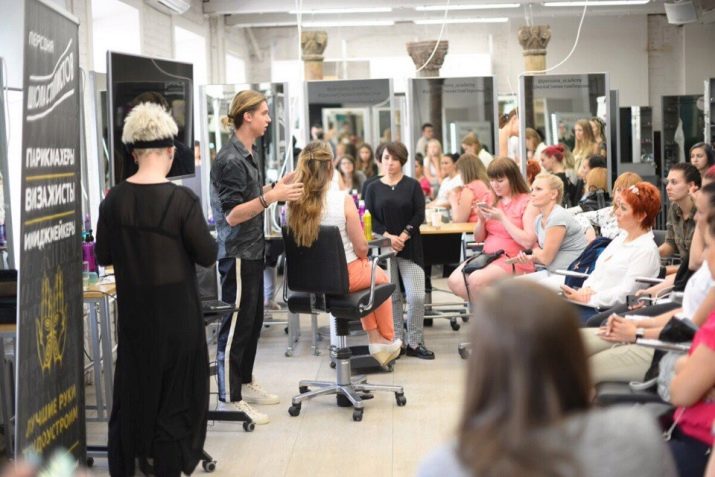
You can improve your skills and learn new things at special courses. Finding them is not difficult. The choice of young professionals presented a wide variety of programs. Experienced masters most often teach on the basis of beauty salons.
The advantages of such training:
- a large selection of programs depending on the interests of students;
- during training, specialists are provided with the necessary equipment and supplies of high quality;
- the opportunity to enroll in individual courses;
- groups consist of several people, so each student receives maximum attention from the teacher;
- study can be combined with the main work and other matters.
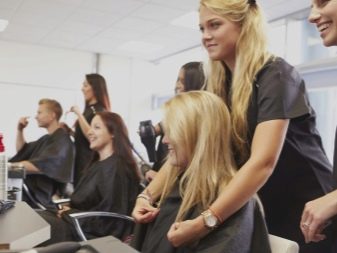
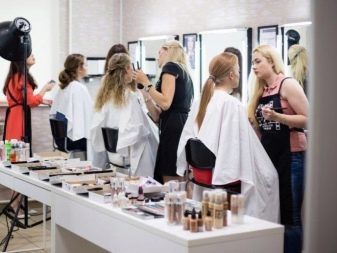
As the main disadvantage of such training, it is noted high cost. Some courses are not affordable for most specialists. The price depends on how qualified the teacher is. It also affects the price of funds used during training. After graduation, each student receives a certificate of completion of the program.
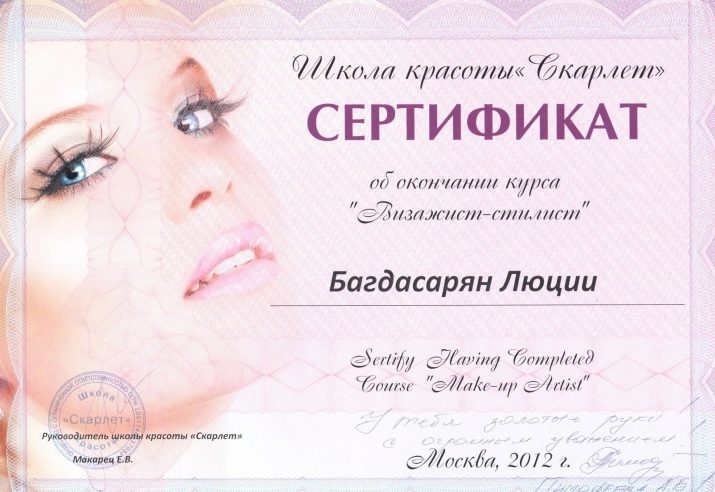
Functional responsibilities
Due to the fact that the profession of hairdresser-makeup artist combines two specialties, the specialist performs the duties of masters of makeup and hairdressing.
The hairdresser must perform the following professional duties:
- massage, shampooing, and hair drying;
- haircuts of various types;
- laying strands;
- hair coloring
- natural hair care;
- selection of cosmetics, taking into account the structure of the hair and the condition of the scalp;
- healing and hair restoration;
- the creation of hairstyles of various kinds;
- waving using special tools, equipment, as well as chemical and electrical methods;
- shaving, as well as the design of a mustache, beard and whisker;
- skin treatment after shaving;
- decoration of hair with accessories;
- styling and selection of a wig;
- lightening hair.
Also, as the work progresses, the specialist must monitor the condition of the working equipment, keep the relevant documentation and purchase supplies.
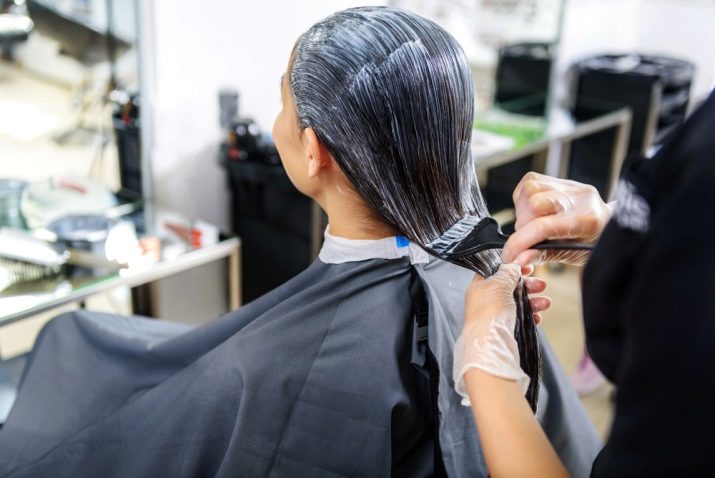
The duties of a makeup artist include the following:
- selection of cosmetics taking into account the client’s color type, skin condition and the style being created;
- design of stylish and fashionable makeup for a specific image or event;
- facial skin care;
- preparation for applying makeup;
- competent removal of decorative cosmetics.
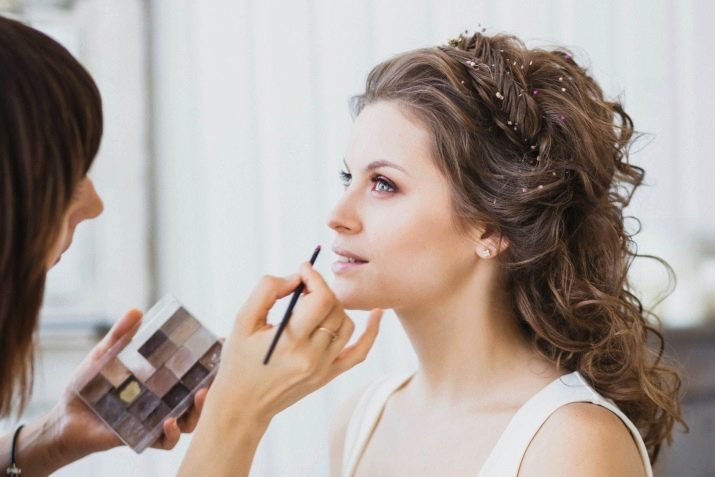
General provisions:
- compliance with hygiene during work;
- the workplace is clean;
- customer consultation;
- drawing up estimates and other reporting documentation;
- implementation of activities under the current legislation;
- purchase of new equipment and its replacement if necessary;
- updating supplies
- compliance with the job description;
- training colleagues with lower qualifications.
